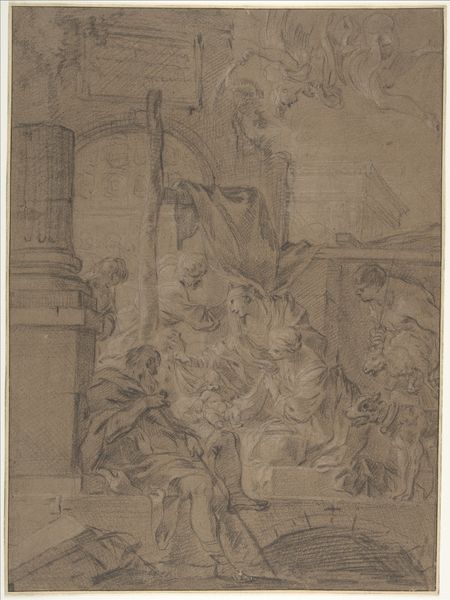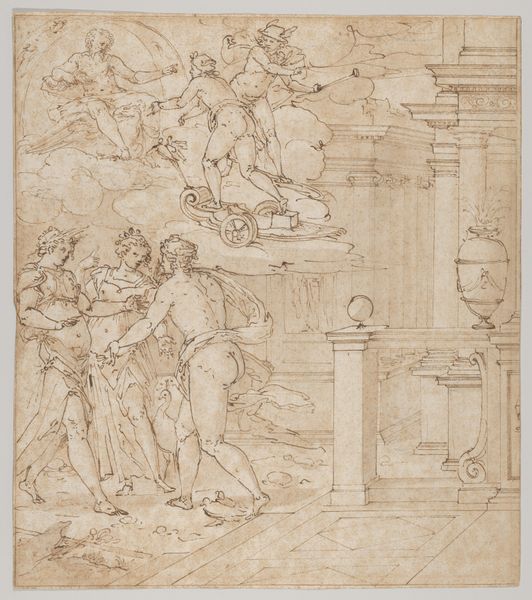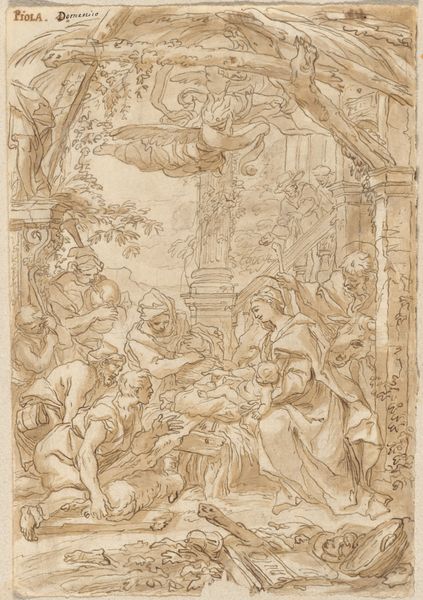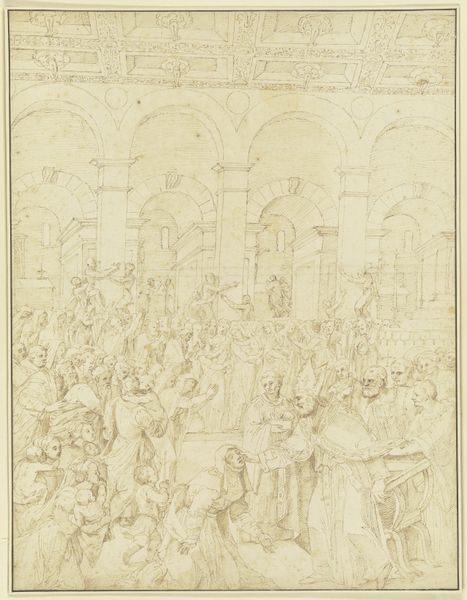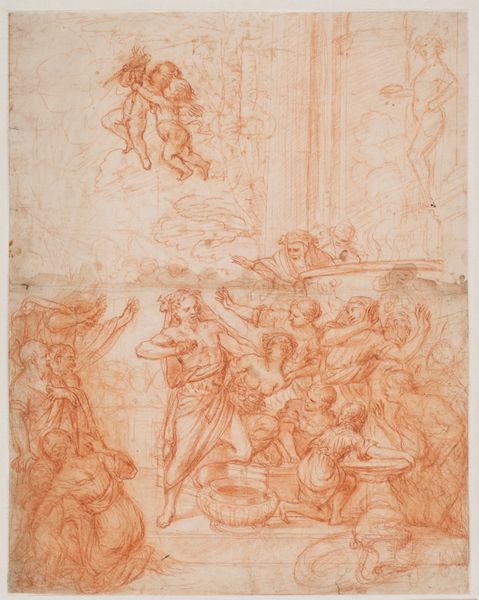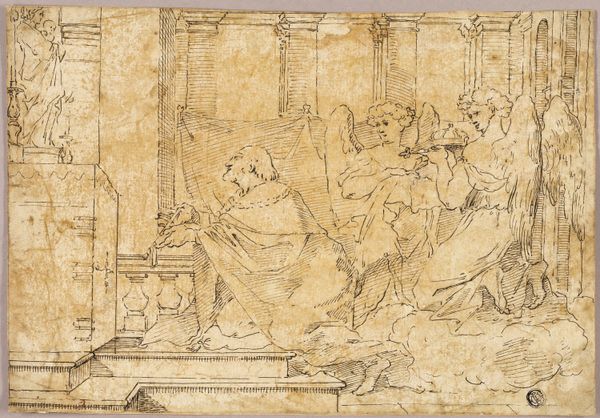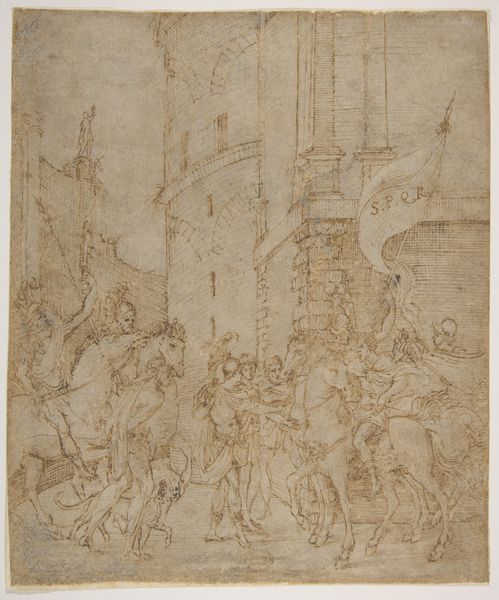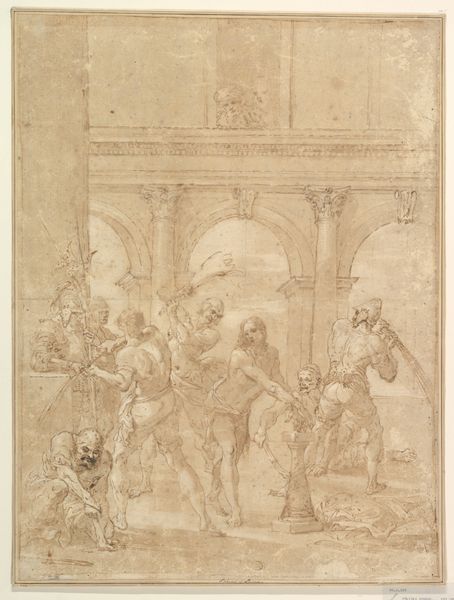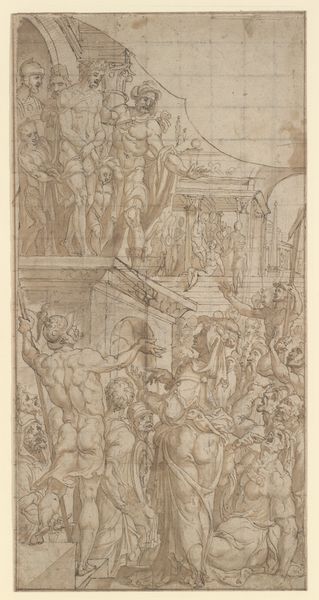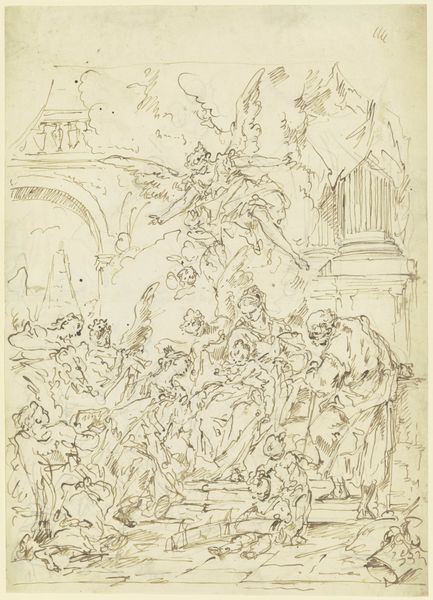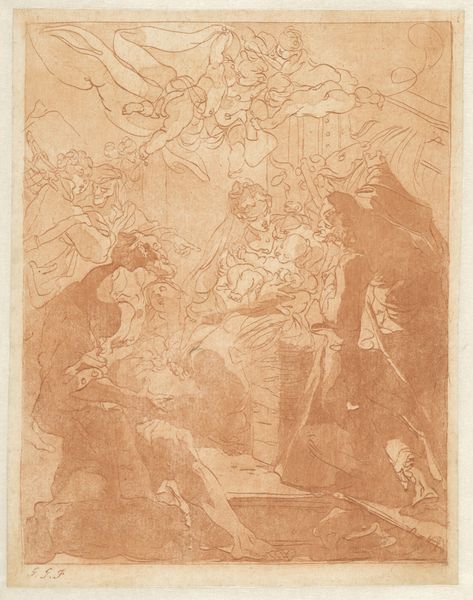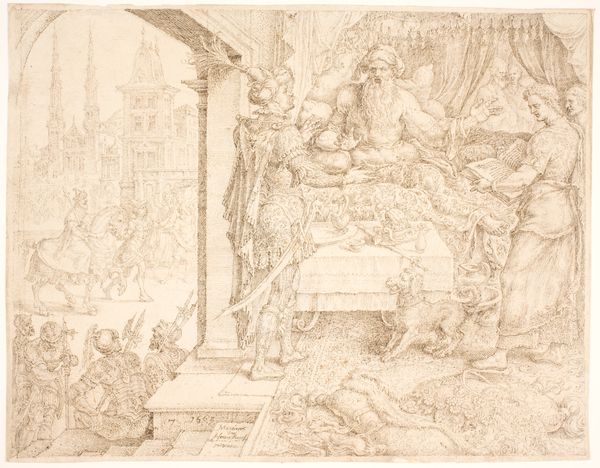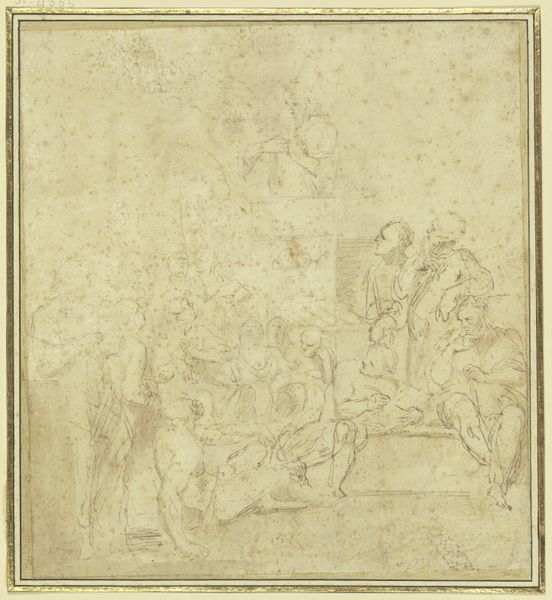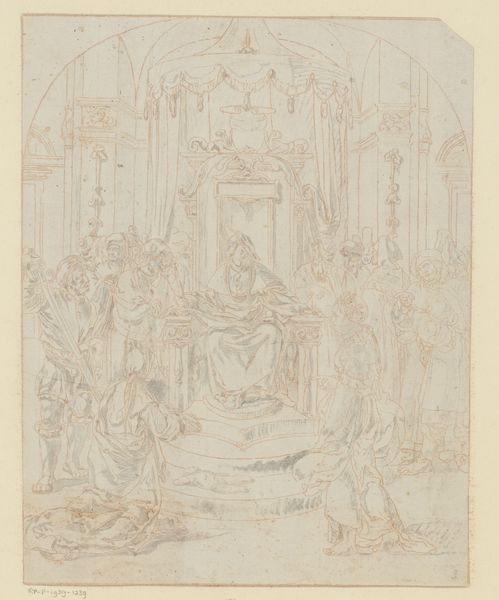
drawing, pencil
#
drawing
#
pencil sketch
#
etching
#
figuration
#
11_renaissance
#
pencil
#
history-painting
#
italian-renaissance
Dimensions: 11 x 7 15/16 in. (28 x 20.2 cm)
Copyright: Public Domain
This Flemish drawing, dating from 1550 to 1600, depicts the Adoration of the Magi. Observe the architectural ruins looming in the background, framing the Holy Family. These remnants evoke not only the passage of time but also the crumbling of the old pagan order before the arrival of Christ. This motif of ruins and crumbling architecture appears throughout Renaissance art and carries a deeper symbolic weight. We see it echoed in other works across Europe that seek to underscore the dawn of a new era. The ruins serve as a memento mori, a reminder of mortality and transience, yet also of hope and renewal. Consider how this symbol has shifted through history. Initially, it may have represented decay and loss, but here it signifies transformation and the cyclical nature of time. Such imagery touches upon our collective memory, engaging viewers on a subconscious level with powerful themes of change, decay, and rebirth. This is the eternal return as told through the language of art.
Comments
No comments
Be the first to comment and join the conversation on the ultimate creative platform.
